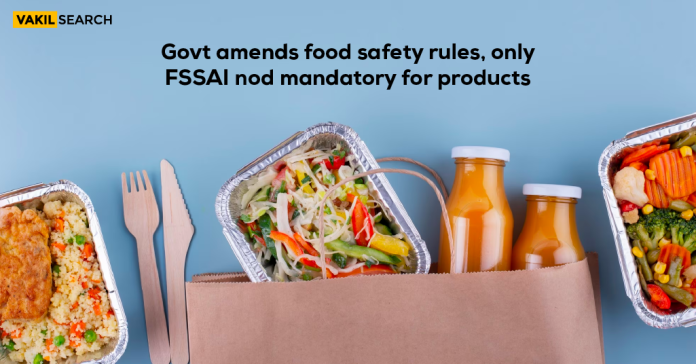In a significant move aimed at simplifying procedures and boosting ease of doing business, the government has given the green light to several amendments in food safety and standard regulations. Under the new regulations, only one certification from the Food Safety and Standards Authority of India (FSSAI) will be required for food products, eliminating the need for certifications from the Bureau of Indian Standards (BIS) and AGMARK
The Health Ministry announced that the FSSAI will issue a draft notification for the amendments and seek feedback from stakeholders before finalising them. This step underscores the government’s commitment to transparency and inclusivity in decision-making processes.
Speaking on the matter, Union Health Secretary Apurva Chandra, who chaired the 43rd meeting of the FSSAI, emphasised the significance of the move, stating, ‘Only FSSAI certification would be mandatory for food products following finalisation of the amendments.’ This decision aligns with the government’s vision of promoting ‘One Nation, One Commodity, One Regulator’, thereby streamlining regulatory processes and reducing bureaucratic hurdles for businesses.
The amendments approved in the meeting cover a wide range of areas, including standards for Mead (Honey wine) and Alcoholic Ready-to-drink (RTD) beverages, revision of standards for milk fat products, and the introduction of standards for Haleem. Notably, Haleem, a popular dish made of meat, pulses, grains, and spices, will now have set standards, addressing a long-standing gap in food safety regulations.
Furthermore, the FSSAI also endorsed a comprehensive manual of methods of analysis to ensure regulatory compliance of food products. This manual will serve as a crucial tool in upholding food safety standards across the country.
Once finalised, these amendments will simplify the certification process for food businesses, eliminating the need to approach multiple authorities for mandatory certifications. By centralising the certification requirement under the FSSAI, the government aims to promote efficiency and uniformity in the food industry while ensuring the highest standards of safety and quality for consumers.
The move is expected to bring about efficiency and uniformity in the food industry by centralising the certification process under the Food Safety and Standards Authority of India (FSSAI). This not only reduces bureaucratic hurdles for businesses but also ensures that the highest standards of safety and quality are maintained for consumers. Vakilsearch appreciates this approach, as it allows for diverse perspectives to be considered, ensuring that the regulations are well-informed and widely accepted within the industry.



